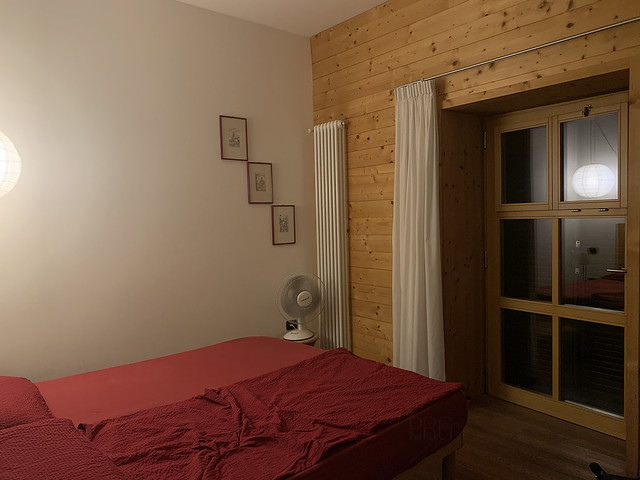The Benefits of an Electric Fan
An electric fan is one of the most important electrical inventions of all time. It’s a necessary part of many advanced technologies, including computers, large LED lights, petrol and electric automobiles, and the space station.
International public health agencies discourage fan use in air temperatures higher than 35degC, on the basis of concerns about increased dry heat gain and dehydration. This Cochrane review aimed to determine humidity-dependent temperature thresholds below which electric fans are beneficial for different age groups.
Improved Breathability
A standard electric fan moves air over the skin, speeding up evaporation and cooling liquids like sweat on your body. A good fan can also help circulate and dehumidifier ventilate a room to clear smoky indoor air, which is especially important if you have smokers living in your home or if you live close to a coal or wood-burning power plant.
A cool breeze from a pedestal fan can suck smoky indoor air, and blow it out through an open window or door. This can be a lifesaver in a house fire, cigarette smoke attack or any other situation where smoky indoor air needs to be cleared quickly.
An electric fan is one of the most affordable and effective ways to fight heat stress. While public health guidelines typically warn against using fans when temperatures are high, new research shows that electric fans prevent heat-related elevations in heart rate and core body temperature.
The study published in the journal Annals of Internal Medicine involved a group of young adults who performed an accelerated humidity ramp protocol either with or without a pedestal fan turned on to provide an air velocity of about 4 m/sec. The results showed that while fans may delay the increase in heart rate and internal body temperature during a hot, humid environment, they are not as effective in dry conditions. The researchers speculate that this is because a higher skin surface temperature and reduced sweat evaporative efficiency in drier environments reduces the benefits of an electric fan.
Reduced Stress
Unlike air conditioning, electric fans are less energy intensive and have a lower carbon footprint. As such, they may be a more cost effective cooling option in areas with hot climates and high humidity. The evaporative effect of an electric fan can help to reduce adverse health impacts such as heat stress.
Several studies have shown that electric fans can prevent heat-related elevations in heart rate and core body temperature. These effects can be achieved even at very high air temperatures and relative humidity conditions, which are typically beyond the limits for comfortable use of fans. However, public health agencies typically discourage fan use during heat waves based on misguided concerns that the accelerated sweat rate associated with fan use could accelerate dehydration.
In a study of 17 people who died during a 1999 heat wave in Cincinnati, USA and 34 controls from the same neighbourhood, Kaiser et al found that those with a working fan in their home were at reduced risk for death compared to those without a fan. The authors reported a crude OR for mortality of 0.5 (95% CI 0.01 to 39) in favour of the presence of an electric fan in the home. This is comparable to the OR of 1.9 (95% CI 1.1 to 3.4) for the presence of a window fan, which is also associated with lower mortality in the same setting.
Enhances Sleep
The gentle white noise that a fan creates may help you sleep better by drowning out distracting background sounds. Fans produce a low, consistent hum that can soothe you into sleep and mask sudden bursts of noise such as car alarms, yelling neighbors or slamming doors. This is especially beneficial if you live in a noisy neighborhood.
In addition, a fan circulating cooler air dehumidifier wholesale in your room may help you fall asleep faster. Sleep experts advise that the ideal temperature for sleeping is between 65 and 68 degrees Fahrenheit. A fan can help you achieve this optimal sleep temperature by keeping the air in your bedroom cool, causing your body to drop its core temperature faster.
Fans are a good alternative to air conditioning in many cases because they consume less energy. Plus, a fan can provide an extra blast of cold air without the expensive price tag.
However, it’s important to note that using a fan during the night can have negative side effects if you suffer from asthma or allergies. The circulating air can carry dust mites, pollen and other allergens that trigger allergic reactions like watery eyes, runny nose or sneezing. If you do decide to use a fan at night, minimize negative effects by keeping the fan at a distance, choosing an air filter and setting it on a timer so it doesn’t run all night.
Reduces Heat Stress
Using an electric fan during a heatwave reduces the amount of stress the body undergoes by increasing the flow of blood to the skin. It also speeds up the evaporation of sweat and thus cools the body down.
The effectiveness of fans is dependent on temperature and humidity, so they should be used in conjunction with other cooling interventions such as air conditioning. However, most of the clinical studies that have been conducted have been limited in duration and have been performed under controlled climate chamber conditions. Verification of these results in field-based trials during full heatwaves is needed.
One study by Kilbourne et al examined questionnaire data from 17 people who died in the heatwave of St Louis and Kansas City, USA in 1980, and matched controls (age, sex and neighbourhood of residence). They found a crude OR for death of 2.5 (95% CI 1.5 to 4.2) in favour of fan use, although this was not statistically significant.
The way that an electric fan works is to convert electrical energy into mechanical energy by energising the capacitor and stator windings, which then drives the rotor. This causes the rotor to rotate, and as it spins, it throws hot air away from its housing. This action cools the fan’s housing and the blades attached to it. This cooling effect is largely due to air being drawn into the fan from the outside, which is then thrown out of the fan.



